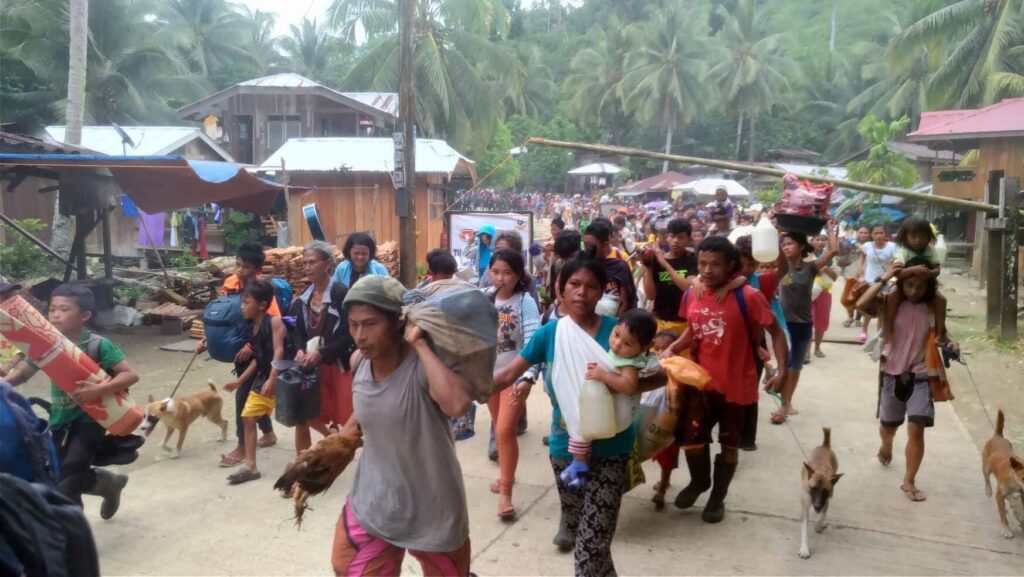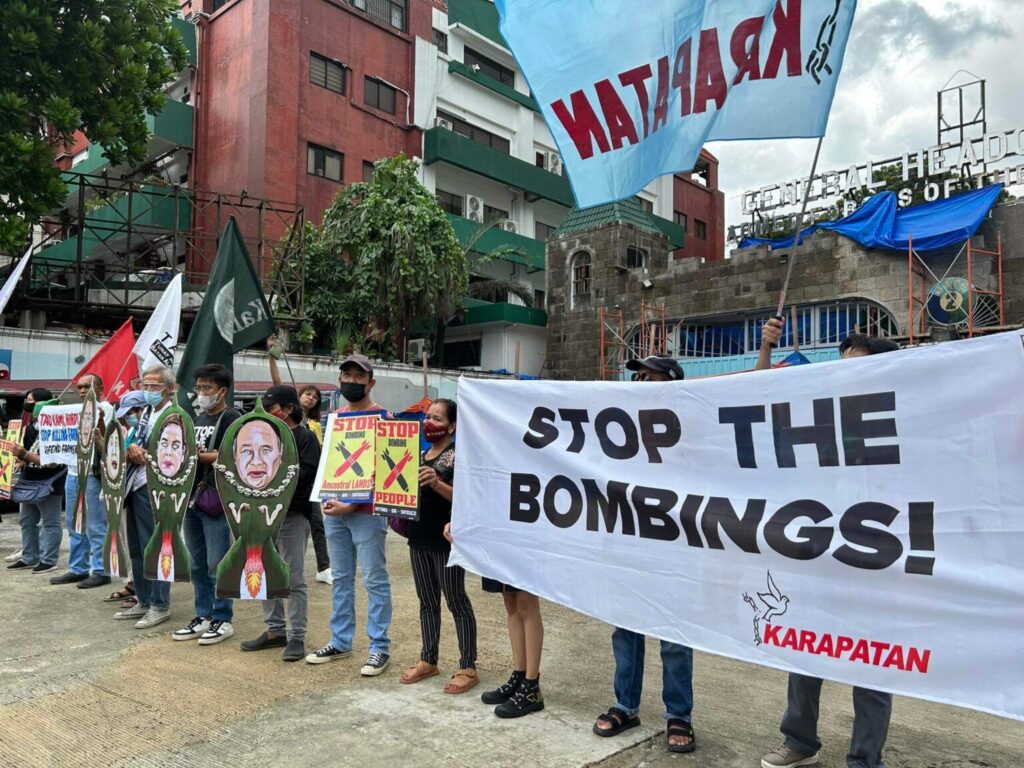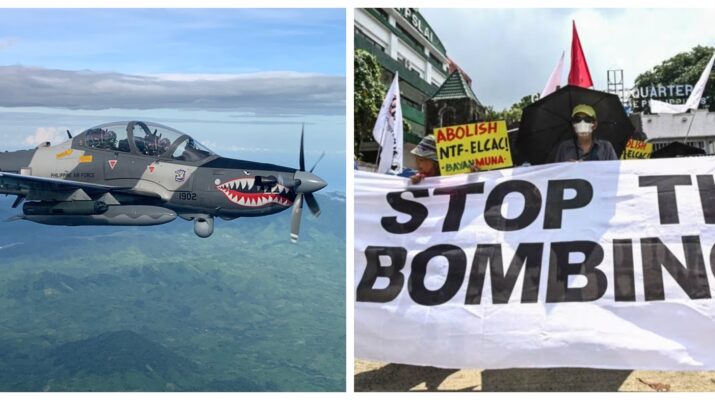Despite posturing that it is open to restarting peace talks with the Communist Party of the Philippines (CPP), and its armed wing the New People’s Army (NPA), the government of President Bongbong Marcos Jr. continues to displace civilian communities with aerial bombardments and militarization.
As most Filipinos celebrated Christmas with their families, the Armed Forces of the Philippines (AFP) launched an aerial bombardment operation in Bukidnon province – targeting supporters of the communist underground movement converging to commemorate the CPP’s founding anniversary.
While the target of this offensive were communist rebels, the barrage of explosions undoubtedly sowed terror into nearby civilian populations who were hoping for a peaceful Christmas holiday. Not to mention, the bombs detonated and artillery shells fired have damaged the natural environment too.

This “scorched earth” strategy by the Philippine Military, where they disregard the welfare of civilian populations to pursue belligerents, is nothing new. In fact, the Bukidnon offensive wasn’t even the only instance that month that the AFP resorted to such tactic.
Over a week before Christmas, two civilians were killed after a surprise AFP assault on an NPA encampment in Batangas province. The two civilians, Pretty Sheine Anacta, 19, and Rose Jane Agda, 30, were said to be visiting a relative in the area when they got caught in the crossfire.
In April last year, the military threatened to heighten their operations in the municipality of Rodriguez, Rizal province causing 250 families to forcibly evacuate as a result. This came as a result of continued military skirmishes with the NPA in the area, disregarding the adverse effects an intensified military operation will cause the civilian population.
Months earlier, the indigenous rights’ group KATRIBU also reported that the Philippine Military were indiscriminately bombing rural communities in Cagayan province. Human rights organizations in the area claimed that more than 100 families had to evacuate as a direct result of the military offensives.
In fact, according to Karapatan’s records, there have been 6,931 victims of bombing, 13,352 victims of forced evacuation and 7,712 victims of indiscriminate firing under the Marcos Jr. regime as of June 2023. The bombardment that happened in Bukidnon last December only adds to that number, along with any other military offensives conducted since June.
The AFP justify its actions by portraying these bombings as legitimate counter-insurgency operations, intended to combat NPA rebels. However, the indiscriminate and disproportionate conduct of the bombings endangers the lives of civilians and violates both the Comprehensive Agreement on Human Rights and International Humanitarian Law (CARHRIHL), as well as the Geneva Conventions of 1949 and its Additional Protocols of 1977.

In short, the military’s aerial bombardment of civilian communities is not only cruel but also violates international humanitarian law.
These aerial bombings and other acts of militarization against civilian communities also proves that the Marcos government, and by extension the Philippine Military’s, offer of peace with the communist rebellion is insincere.
How can the Philippine government be in favour of peace when they continuously target civilian communities and break human rights law?
Abuses by the military is a significant root cause of why marginalized sectors in the Philippines take up arms against the government. The continuous attacks on civilian communities, on top of the red tagging of activists and worsening bureaucratic corruption in the country, will only aggravate the people’s anger.
If President Marcos wants to differentiate himself from his predecessor, Rodrigo Duterte, in the eyes of the international community he must take a different approach to forging peace. The incumbent head-of-state must address the root causes of the conflict, or else have his recent efforts to resume peace talks with the communist underground be seen as mere lip service.

